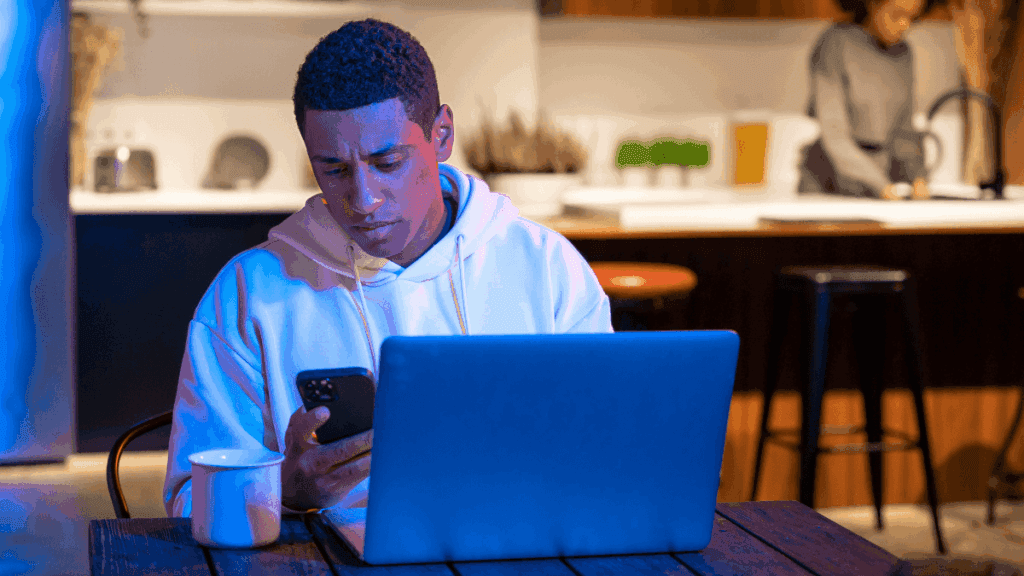In today’s interconnected world, where nearly every aspect of our lives is online, ensuring our personal privacy and security has never been more important. With the increasing sophistication of cybercriminals and the prevalence of data breaches, we must take proactive steps to protect our information. Whether you’re just starting to take privacy seriously or you’ve been mindful of it for years, this guide provides practical tips for checking your personal status in terms of online privacy and security.
Online Privacy and Security Tips:
1. Limit Personal Information Shared on Social Media
Social media platforms like Facebook, Instagram, Twitter, and LinkedIn are popular hubs for connecting with friends, family, and even businesses. However, they can also become a goldmine for cybercriminals looking to steal your identity or access your financial details.
Why it matters: Oversharing on social media can inadvertently expose sensitive information. Cybercriminals can use details like your full name, date of birth, phone number, or even your pet’s name to steal your identity or gain access to your accounts.
What to do: Avoid filling out personal details in the “About Me” section, and review your privacy settings to ensure that only trusted individuals can view your posts. You can limit the visibility of your posts to friends or specific groups instead of making them public. Additionally, be cautious about sharing your location in real-time, especially in public spaces.
2. Use Strong, Unique Passwords
Passwords are the first line of defense against unauthorized access to your online accounts. If you’re still using weak or repeated passwords across multiple sites, you’re putting yourself at great risk.
Why it matters: Cybercriminals use sophisticated tools to crack weak passwords. Once they access one of your accounts, they may attempt to break into others, especially if you’re using the same password across multiple platforms.
What to do: Use a strong password for each of your accounts. A good password should be at least 12 characters long and include a mix of uppercase and lowercase letters, numbers, and special characters. Avoid using obvious passwords like “12345” or “password.” Consider using a password manager to securely store and generate strong passwords for each account.
3. Implement Multi-Factor Authentication (MFA)
Multi-Factor Authentication (MFA) adds an extra layer of security to your online accounts by requiring something you know (like your password) and something you have (like a code sent to your phone).
Why it matters: With MFA, even if someone manages to get hold of your password, they would still need access to your second factor (e.g., your phone or authentication app) to log in. This significantly reduces the risk of unauthorized access.
What to do: Enable MFA wherever possible. Most popular platforms, such as Google, Facebook, and online banking services, offer this extra layer of protection. You can use authentication apps like Google Authenticator or services like Duo to set up this feature on your accounts.
4. Update Devices, Software, and Browsers
Many of us ignore software updates, but they often contain security patches that protect you from newly discovered vulnerabilities.
Why it matters: Cybercriminals are constantly looking for weaknesses in software and devices. By leaving your devices and software outdated, you’re essentially leaving the door wide open for hackers.
What to do: Ensure that your devices, operating systems, and apps are up to date. Enable automatic updates whenever possible to ensure you’re always protected with the latest security enhancements.
5. Be Careful of Suspicious Messages
Phishing, smishing, and vishing are all forms of scams where cybercriminals attempt to trick you into revealing sensitive information. These schemes often come in the form of fraudulent emails, phone calls, or text messages.
Why it matters: Fraudulent messages can appear to be from trusted sources, like your bank or a friend, making it easy to fall for the scam. Responding to these messages could result in financial loss or identity theft.
What to do: Be skeptical of unsolicited messages that ask for personal or financial information. Always verify the sender’s identity before responding or clicking on any links. If you receive a suspicious email from your bank, for example, don’t click any links but rather call their official customer service number to verify the message.
6. Browse Safely
When you’re browsing the web, particularly when making purchases or entering sensitive information, security should be top of mind.
Why it matters: If you’re submitting credit card numbers or other personal details on a website without proper security, your data could be intercepted by hackers.
What to do: Ensure that any website where you submit sensitive data has a secure connection, indicated by “https://” at the beginning of the URL. Always double-check that you’re on the legitimate site—fraudulent websites may have URLs that look similar to the official ones but contain slight differences.
7. Use a Virtual Private Network (VPN)
A VPN creates an encrypted connection between your device and the internet, providing an added layer of security when browsing.
Why it matters: Public Wi-Fi networks, like those in cafes or airports, are often not secure, and hackers can easily intercept data sent over them. A VPN helps protect your personal information by making it difficult for attackers to eavesdrop on your internet activity.
What to do: Use a VPN when accessing the internet over public Wi-Fi or when you need extra privacy. Many VPN services are available, both free and paid. Look for one with strong encryption and a no-logs policy.
8. Monitor Your Digital Footprint
It’s essential to stay informed about how and where your personal data is being used online. Cybercriminals often target information available on public databases, and you may not even know when your data has been compromised.
Why it matters: Knowing where your information is being used can help you identify potential risks or breaches. Being proactive about monitoring can help you react quickly if your personal details are misused.
What to do: Set up Google Alerts to track mentions of your name or other personal information online. Websites like Have I Been Pwned allow you to check if your data has been involved in a data breach. You should also regularly review your accounts for suspicious activity.
9. Don’t Overshare
It’s tempting to post personal updates, photos, and life details on social media, but this can leave you vulnerable to identity theft.
Why it matters: Cybercriminals can gather enough information from your social media profiles to guess your passwords, security questions, or even hack into your bank accounts.
What to do: Limit the personal information you share online. Avoid posting sensitive details like your birthdate, address, or children’s names, and never share your passwords or answers to security questions on social platforms.
10. Be Wary of Online Strangers
The anonymity of the internet means that anyone you meet online could be pretending to be someone they are not.
Why it matters: Strangers online may attempt to scam, trick, or manipulate you into revealing private information. It’s essential to remain cautious when interacting with unfamiliar people on the internet.
What to do: Never share personal details with someone you’ve met online, and always be cautious when agreeing to meet someone in person. Keep your personal information private, even from people you think you know.
Check also: The Importance of Credit Status Checks for South African Entrepreneurs
In an increasingly digital world, safeguarding your personal information is crucial. By following these practical tips—such as limiting what you share on social media, using strong passwords, enabling multi-factor authentication, and browsing securely—you can significantly enhance your online privacy and security. Stay vigilant and proactive, and you’ll be better equipped to protect yourself from the many online threats that exist.










